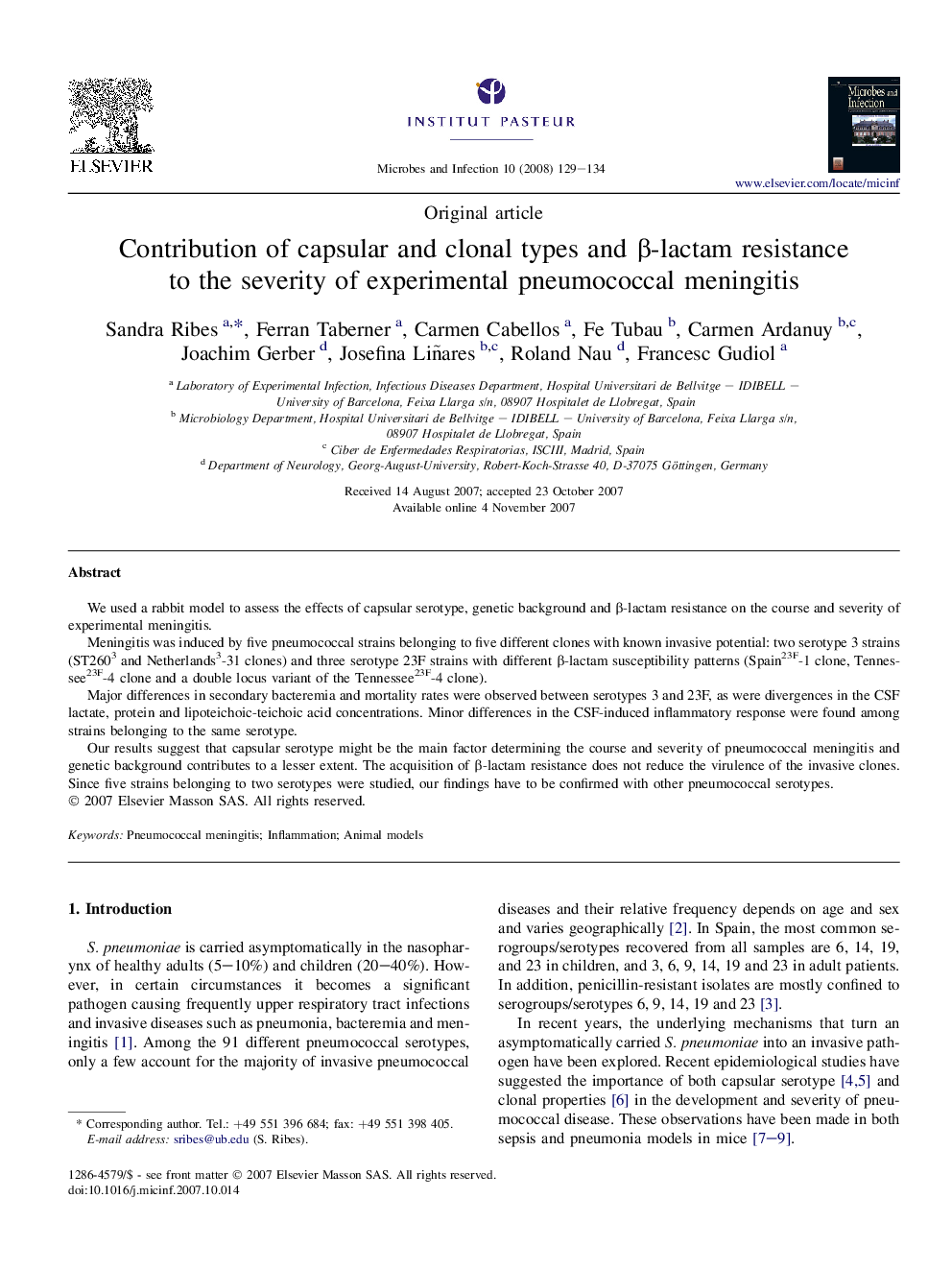| Article ID | Journal | Published Year | Pages | File Type |
|---|---|---|---|---|
| 3415440 | Microbes and Infection | 2008 | 6 Pages |
We used a rabbit model to assess the effects of capsular serotype, genetic background and β-lactam resistance on the course and severity of experimental meningitis.Meningitis was induced by five pneumococcal strains belonging to five different clones with known invasive potential: two serotype 3 strains (ST2603 and Netherlands3-31 clones) and three serotype 23F strains with different β-lactam susceptibility patterns (Spain23F-1 clone, Tennessee23F-4 clone and a double locus variant of the Tennessee23F-4 clone).Major differences in secondary bacteremia and mortality rates were observed between serotypes 3 and 23F, as were divergences in the CSF lactate, protein and lipoteichoic-teichoic acid concentrations. Minor differences in the CSF-induced inflammatory response were found among strains belonging to the same serotype.Our results suggest that capsular serotype might be the main factor determining the course and severity of pneumococcal meningitis and genetic background contributes to a lesser extent. The acquisition of β-lactam resistance does not reduce the virulence of the invasive clones. Since five strains belonging to two serotypes were studied, our findings have to be confirmed with other pneumococcal serotypes.
